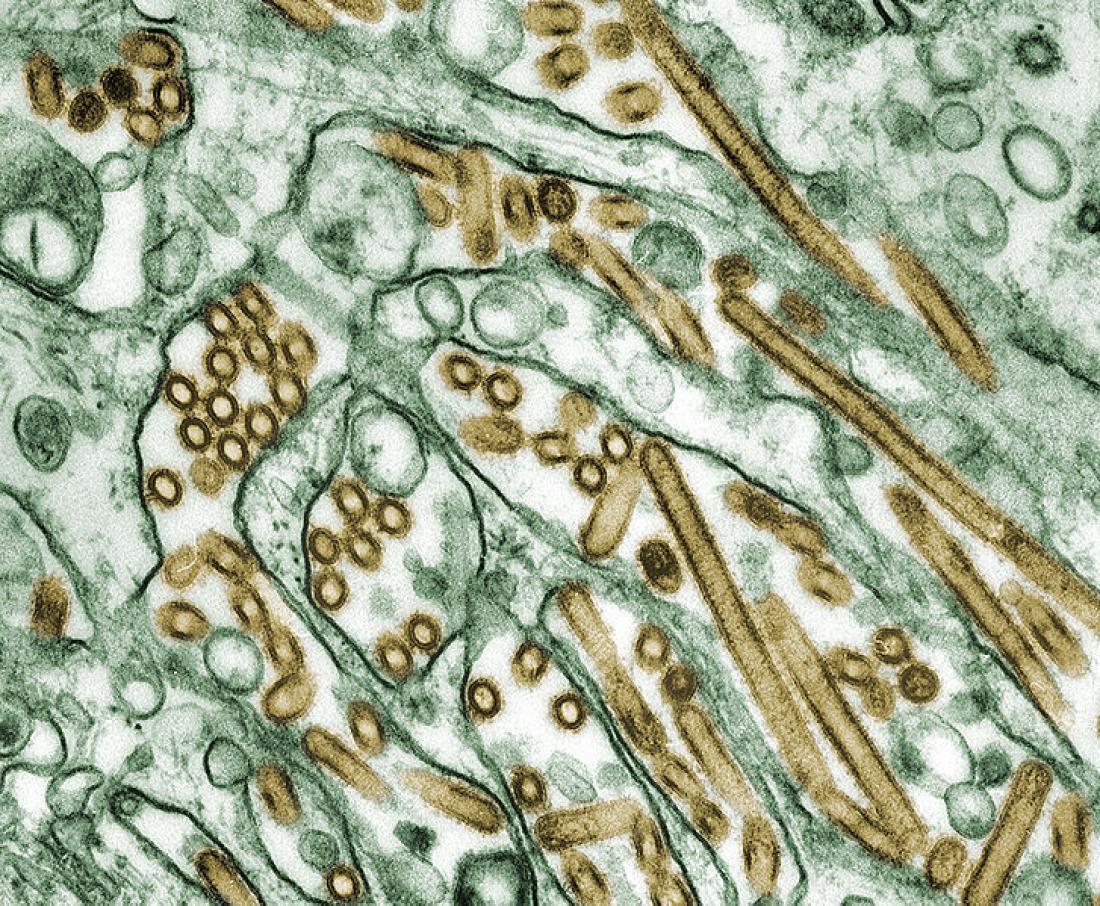Colorized transmission electron micrograph of Avian influenza A H5N1 viruses (seen in gold) grown in cells (seen in green).
This project focuses on recent policies developed in response to the spread of avian influenza. In response to widespread avian influenza H5N1 outbreaks in poultry flocks in recent years, most governments in Southeast Asia have issued policies that encourage small poultry farmers to concentrate their production activities in specific zones or clusters. This is expected to reduce influenza risks due to improved biosecurity and to yield economic benefits through economies of scale. However, the concentration of large flocks of poultry in these clusters may in fact increase the risk of infection and spread of diseases, including to humans.
This project sets out to examine the experiences to date with such policies in China, Indonesia, Thailand and Vietnam. The first phase of the research will investigate the impacts of the creation of poultry production zones on farmers' livelihoods, the environment and on disease risks. Based on the results of this investigation, improvements in organisation and management of such zones will be piloted and assessed in order to provide concrete inputs to on-going policy discussions.
This project (total 1.3 million CAD) was selected through the Ecohealth Emerging Infectious Diseases in Southeast Asia (EcoEID) Research Competition, jointly launched by IDRC's Ecosystems and Human Health Program and the Global Health Research Initiative, with funding from IDRC, CIDA and AusAID. The aim of EcoEID is to build capacity for ecohealth research on emerging and re-emerging infectious diseases and generate knowledge to enhance the prevention, preparedness and response to such diseases.
For information on this project or avian influenza in general:
CONTACT
Hein Mallee
Senior Program Specialist
International Development Research Centre
Ecosystems and Human Health Program
www.idrc.ca
www.cdri.ca
If you are a registered journalist full contact details can be obtained in our expert database here: http://goo.gl/dJq19
Hein Mallee is a social scientist with a Ph.D. from the Leiden University, the Netherlands. He has been with Canada's International Development Research Centre since 2004, working on rural development, poverty, and community-based natural resources management. He is now a Senior Program Specialist on IDRC's Ecosystems and Human Health Program. Prior to joining IDRC, he worked with the Netherlands government and the Ford Foundation on poverty alleviation in China. He has published about migration and rural development, migration policy, and natural resources management.



